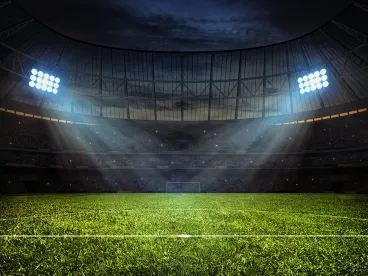The NCAA recently paved the way for collegiate athletes to monetize their names, images, and likenesses. But while American college athletes sign lucrative “NIL” (name, image, and likeness) deals, American immigration laws prevent their international counterparts from doing the same.
Brief History of College Sports
American colleges and universities have long had a complicated relationship with sports and money. The first college sporting event dates back to the Harvard-Yale Regatta, first held in 1852, an annual event since 1864. Following the emergence of college football in the early 20th century, severe injures – exacerbated by poor protective gear – led to Presidential intervention. In 1906, President Theodore Roosevelt twice summoned the leaders of college athletic programs to the White House. The ensuing reforms gave rise to a newly-formed Intercollegiate Athletic Association of the United States (“IAAUS”). Just four years later, this organization would change its name to the National Collegiate Athletic Association (“NCAA”).
Since its formation, the NCAA has transformed into a sports behemoth. In its 2016-2017 fiscal year, the organization brought in over one billion dollars in revenue. As the organization grew, so did the salaries of everyone from Athletic Directors to Coaches to Commissioners. However, although benefiting from scholarships and other indirect compensation, the athletes remained unpaid for their labor.
NCAA Changes its Name, Image, and Likeness Policy for Student Athletes
On June 30, 2021, the NCAA announced its new NIL policy. The policy provides the following guidance to members’ schools:
-
Individuals can engage in NIL activities that are consistent with the law of the state where the school is located. Colleges and universities may be a resource for state law questions.
-
College athletes who attend a school in a state without an NIL law can engage in this type of activity without violating NCAA rules related to name, image, and likeness.
-
Individuals can use a professional services provider for NIL activities.
-
Student athletes should report NIL activities consistent with state law or school and conference requirements to their school.
This policy change constituted a monumental shift for student athletes. Following the announcement, states across the United States, including Pennsylvania, quickly passed legislation permitting NIL compensation for college athletes. To date, no federal legislation has directly addressed the issue.
While many student athletes quickly cashed in on the new policy by inking NIL deals, international students faced a problem. Regulations governing student visas restrict the ability of international students to earn compensation.
F-1 Visa Regulations
For international students to study in the United States, they must apply for visas through the U.S. Department of State. Generally, international student athletes enter the United States with an F-1 visa.
To maintain status under an F-1 visa, a student may engage in paid work under one of four scenarios: 1) on-campus employment, 2) off-campus employment for economic hardship, 3) in curricular practical training, or 4) in optional practical training. Under current regulations, these earning options are intentionally limited.
Accordingly, the type of NIL sponsorship deals now available to NCAA athletes are not available to F-1 visa holders. In fact, by earning income through an NIL deal, an F-1 student visa holder could face a litany of troubles, including deportation.
Options for International Student Athletes
FiveThirtyEight recently reported on these ongoing concerns. Currently, the NIL framework born out of the new NCAA policy remains just a patchwork of newly enacted state laws. Accordingly, the immigration laws governing student visas conflict with the NCAA proposal, leading to continued aggravation among international student athletes. That said, a recent article from Tuscon.com highlights the fact that the Student and Exchange Visitor Program (“SEVP”) continues to assess this issue, noting it is an “ongoing conversation.”
While this issue plays out, international student athletes will be forced to stand by while their domestic teammates sign lucrative deals for the same work they themselves do. In the meantime, international student athletes must continue to diligently consult with their college or university about the rules and regulations surrounding their visa status.



 />i
/>i

